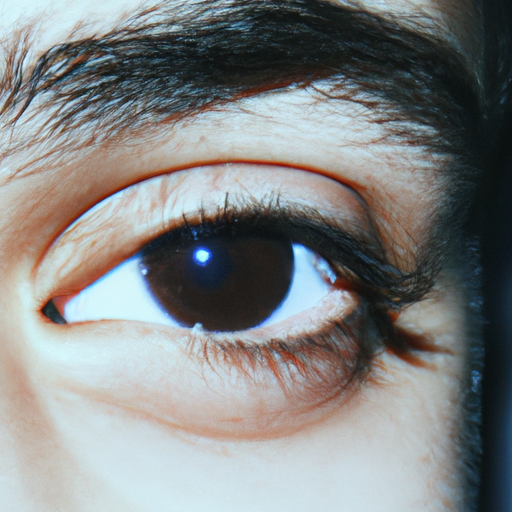As a medical professional, I often encounter patients who are concerned about the dry skin around their eyes. This area is particularly sensitive and prone to dryness due to its thin and delicate nature. The skin around your eyes doesn’t produce as much oil as other parts of your face, making it more susceptible to dehydration and aging. Revitalizing your gaze through effective hydration can help alleviate these issues and maintain a youthful, vibrant appearance.
The first step in addressing dry skin around the eyes is understanding its causes. Several factors can contribute to this condition, including environmental elements like wind, sun exposure, and cold weather, lifestyle habits such as insufficient water intake, excessive caffeine or alcohol consumption, and smoking, or underlying health conditions like dermatitis or rosacea. Aging also plays a significant role as the skin naturally loses elasticity and moisture over time.
Hydration is key in combating dry skin around the eyes. Drinking plenty of water throughout the day helps hydrate your body from the inside out. Aim for at least eight glasses of water daily, but remember that individual needs may vary. Incorporating foods rich in omega-3 fatty acids, such as salmon, chia seeds, and walnuts, into your diet can also improve skin hydration.
Topical hydration is equally important. Look for eye creams or serums that contain hyaluronic acid, a powerful humectant that can hold up to 1000 times its weight in water. This ingredient helps retain moisture in the skin, plumping up fine lines and wrinkles. Ceramides are another beneficial ingredient; they strengthen the skin’s natural barrier, preventing moisture loss.
Avoid products with harsh ingredients like alcohol, fragrance, or retinoids, which can further dry out the skin. Always apply eye cream gently using your ring finger to avoid tugging on the delicate skin.
In addition to hydration, protecting your skin from environmental damage is crucial. Always wear sunglasses when outside to shield your eyes from harmful UV rays. If you’re in a dry environment, consider using a humidifier to add moisture to the air.
Regularly giving your eyes a break can also help. If you spend long hours in front of a computer or other digital devices, follow the 20-20-20 rule: every 20 minutes, look at something 20 feet away for 20 seconds. This simple practice can reduce eye strain and dryness.
Lastly, remember that everyone’s skin is unique. What works for one person may not work for another. It’s important to listen to your skin and adjust your routine accordingly. If you’re struggling with persistent dry skin around your eyes, don’t hesitate to seek professional help. A dermatologist or ophthalmologist can provide personalized advice and treatment options.
Revitalizing your gaze through effective hydration is not just about aesthetics; it’s about maintaining the health of your skin. By understanding the causes of dry skin around the eyes and implementing a targeted hydration strategy, you can keep this delicate area nourished, comfortable, and youthful-looking.



